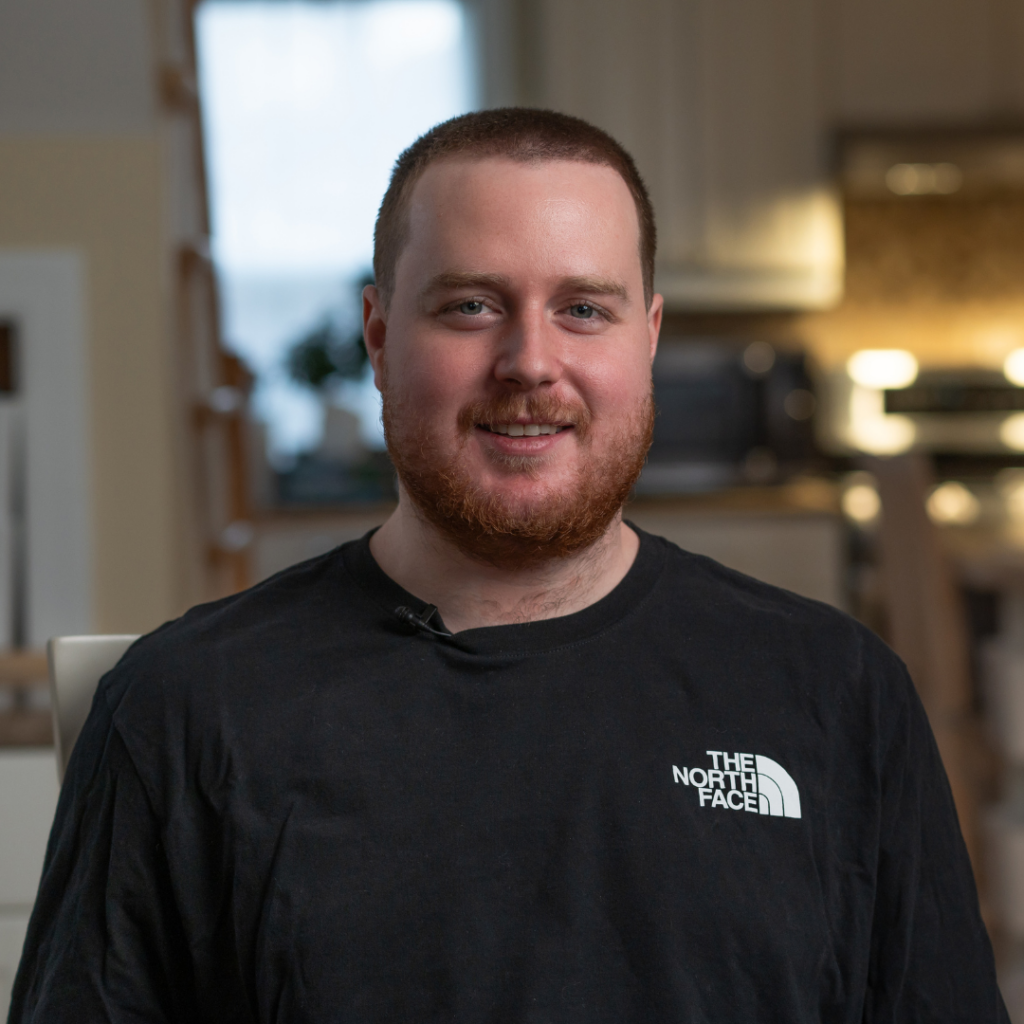
Becoming a psychiatrist wasn’t always the obvious choice for Dr. Sarah Brandigampola. Interested in the arts from an early age, her passion for psychiatry emerged after a chance rotation during medical school. Today, she’s a psychiatrist in The Ottawa Hospital’s offsite On Track program for people experiencing early symptoms of psychosis, and she’s part of an essential team helping people get back to the life they want to live.
Scroll down to read more about how Dr. Brandigampola is helping people with psychosis rewrite their stories — and the surprising career she would have chosen if she didn’t pursue medicine.
Q: Can you tell us a little about growing up and your early years?
I grew up in Listowel, in the middle of Mennonite farming country. It’s a small town, with two stop lights. Growing up I was interested in a lot of different things, but I wanted to be a neurosurgeon or a star on Broadway. I did a lot of theatre, dance, and music. Our music program was a vocal program, and I was fortunate to travel a lot with our choir; we even performed at the Notre Dame cathedral in Paris.
Q: When did you decide to pursue medicine, and specifically psychiatry?
I was finishing high school, and I had to make a difficult decision. I wanted to pursue both the sciences and the arts. In the end, I always wanted to help people. I had a strong sense of social justice and wanting to contribute in a meaningful way to helping people. So, I chose medicine because I thought it would be more fulfilling for me.
I studied cellular biology at Western University in London, Ontario, and then came to Ottawa for medical school. In third year medical school, you rotate through different areas, and I was not interested in psychiatry; I wanted to be an oncologist. But, when I went into the psychiatry rotation, I found it so meaningful looking at people from a global perspective — not just at their medical illness, but at their living situation, their relationships, their childhood, their income, at what makes them a person — and how can we help them with their illness. I also loved the teamwork aspect — it felt side-by-side with nursing, social work, occupational therapy, recreational therapy, everything; everyone was really working as a cohesive team with this vision of how we could help this person as a person.
“When you’re looking at the story of people’s lives, it’s a lot like reading a book; you pull out themes and look for critical moments.”
— Dr. Sarah Brandigampola
Now that I think about it, I think a lot of my skills were aligned with psychiatry. Psychiatry wound up being a meeting point between neurology and the arts. When you’re looking at the story of people’s lives, it’s a lot like reading a book; you pull out the themes and look for critical moments for communication. With psychiatry, we can help people tell their stories in a way that has meaning to them.
Q: How has the field of psychiatry changed since you started?
I definitely think there’s a lot less stigma about mental health now than when I started. People are talking about it a lot more. There’s a long way to go, specifically around severe and persistent mental illnesses. In terms of the future, there’s so much research that needs to be done. We still don’t truly understand what causes schizophrenia or most mental illnesses.
Q: You worked on Sean Heron’s case. What made that case challenging or unique?
“He really jumped into the program. Everything we suggested, he said, “Yes.” We have a walking group, a social group, a sports group, occupational therapy, recreational therapy, medication. He did it all, and we just saw him come to life.”
— Dr. Sarah Brandigampola
Sean is one of our star patients. It’s the kind of story you want to hear. When we met him, he was very unwell, and he’d been unwell and untreated for about a year and a half. That was worrisome because the longer the duration of untreated psychosis, this does have an impact on people’s prognosis. The goal of our clinic is to intervene earlier in the illness.
In spite of that, he just did so well. He really jumped into the program. Everything we suggested, he said, “Yes.” We have a walking group, a social group, a sports group, occupational therapy, recreational therapy, medication. He did it all, and we just saw him come to life.
The number one predictor in the program is whether they have a supportive and involved family member, and once he was in it, he started going out for walks every day with his mom again.
Q: What advice would you give to someone experiencing first-episode psychosis?
What I hope people can learn about schizophrenia is that there’s so much hope for this illness. Most people with schizophrenia do very well if they get into treatment.
We take self-referrals, so if people have a loved one, or if they’re wondering if something is happening to themselves, they can call us, and we’ll see them and help them figure it out.
It’s also important for people to know a symptom of schizophrenia is a neurological one called anosognosia — the inability to know something is wrong. The part of your brain that tells you something is wrong turns off. It can be really frustrating for family members, because they’re trying to reason with the person. It’s best to focus on things like not going to school, not seeing friends, or other changes, and start the conversation there.
Q: What is The Ottawa Hospital doing in psychiatry and mental health that is exciting or groundbreaking?
Our On Track program is the model of care that I would hope everyone with mental illness could be a part of. I think it is very exciting what we do as a clinic — we have such amazing success stories. When you talk to people about a diagnosis of schizophrenia, you just see their face change and their parents are often shocked. But we have such great outcomes at this clinic. This illness does not have to dramatically change your life, and I would say it’s because of the model of care we provide.
Our leadership is also really great. Dr. Jess Fiedorowicz, Head and Chief of the Department of Mental Health, is amazing. He’s an endlessly optimistic person who sees what we could be doing and pushes us to be doing more. I think he’s striving for mental health to be even more comprehensive.
Q: As a psychiatrist, why did you choose to work at The Ottawa Hospital?

I did six months in the On Track program for my residency, and I wanted to keep working here with this team. They are amazing. This is not work you can do on your own, and it’s wonderful to have such a great clinical team, but also this community of people where there’s a genuine camaraderie. I never have any doubt people are going above and beyond. I know I can trust people’s judgment. It can be difficult sometimes, but there’s a lot of humour and friendship and genuine caring for each other.
I’m also so grateful for my patients and to be trusted with their stories and their care. They teach me everything.
Q: What would we find you doing when you aren’t at the hospital?
I have my family, and we like to get outside. I also love reading and travelling. If I can, I enjoy seeing live music and things that keep me engaged with the arts.



